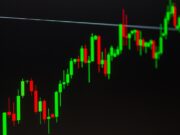While the broader market has struggled in 2025, with the S&P 500 down more than 3% year-to-date, a revealing pattern has emerged among corporate insiders. These executives and board members—who often have the deepest understanding of their companies’ prospects—have been actively buying shares of their own businesses during the recent volatility.
As Bank of America’s head of U.S. equity and quantitative strategy Savita Subramanian noted, “Positioning of active hedge funds and mutual funds gives insight into consensus among fundamental investors. But insider positioning can be considered the ‘smartest money.'” More tellingly, her research indicates that “extreme insider buying/selling has been a better contrary indicator since 2010, perhaps as insiders tend to support stocks by buying amidst a drop and/or they sell early into strength.”
Let’s examine three companies where significant insider buying suggests confidence from those with the closest view of business fundamentals.
Wynn Resorts (WYNN)
Leading Bank of America’s insider buying screen is Wynn Resorts, where insider purchases over the past three months represent 0.53% of the company’s float—the highest percentage among S&P 500 companies. The most notable buyer has been billionaire Tilman Fertitta, CEO of Landry’s and owner of the Houston Rockets, who acquired 400,000 shares over just a few days in early April according to securities filings.
This recent buying isn’t Fertitta’s first move into Wynn shares. Last year, he increased his stake to 9.9%, becoming the casino operator’s largest individual shareholder. His continued accumulation signals strong confidence in Wynn’s prospects despite broader market concerns about consumer discretionary spending during economic uncertainty.
What makes this insider activity particularly compelling is how it contrasts with the stock’s modest 2% gain this year amid significant market volatility. While shares haven’t participated in the upside seen in other sectors, Wall Street analysts remain overwhelmingly bullish, with 15 of 18 analysts rating Wynn a buy or strong buy. Consensus price targets suggest more than 20% upside from current levels around $95.
The casino operator’s Las Vegas properties continue to demonstrate strength, while its Macau operations have shown steady recovery following the lifting of COVID restrictions. For investors looking to follow insider confidence, Wynn offers exposure to high-end consumer spending with strong backing from those closest to the business.
Occidental Petroleum (OXY)
Few insider buyers command more attention than Warren Buffett, and his Berkshire Hathaway has been steadily acquiring shares of Occidental Petroleum. Over the past three months, insider buying has represented 0.11% of Occidental’s float, placing it third on Bank of America’s insider buying screen.
Berkshire purchased an additional 763,017 shares in February for $35.7 million, continuing Buffett’s multi-year accumulation of the energy producer. This ongoing buying suggests the Oracle of Omaha sees value in Occidental that the broader market hasn’t yet recognized—particularly notable given the stock’s 14% decline so far in 2025.
Occidental’s recent financial performance supports this insider confidence. The company just reported first-quarter adjusted earnings of 87 cents per share, significantly exceeding analyst expectations of 78 cents. This earnings strength comes despite the challenging oil price environment we’ve seen in recent months.
Looking beyond current market conditions, Occidental’s strategic positioning in the Permian Basin and its investments in carbon capture technology provide both near-term cash flow and potential long-term growth avenues. With consensus price targets suggesting 14% upside from current levels around $44, investors have an opportunity to follow Buffett’s lead at prices even more attractive than his recent purchases.
Franklin Resources (BEN)
Asset manager Franklin Resources rounds out our insider buying watchlist, with insider purchases representing 0.04% of its float over the past three months. The most significant buying came from billionaire Charles Johnson, who retired as chairman in 2013 but clearly maintains confidence in the company’s prospects. Johnson acquired 100,000 shares in March for approximately $2 million.
This insider buying stands in contrast to the generally cautious stance Wall Street has taken on asset managers amid competitive pressures from passive investment products. Most analysts rate Franklin Resources a hold, with consensus price targets actually suggesting a 7% decline from current levels.
However, Johnson’s substantial purchase suggests he may see value that the analyst community doesn’t—potentially in Franklin’s recent strategic acquisitions, its global distribution footprint, or its efforts to expand its alternative investment offerings. The stock has outperformed the broader market with a 3% gain in 2025, indicating some investors share this more optimistic view.
While Franklin faces the industry-wide challenges of fee compression and the shift toward passive investing, its insider buying offers a compelling contrarian signal. With a dividend yield above 4% and a long history of returning capital to shareholders, investors following this insider activity gain both income potential and exposure to any fundamental improvement in the asset management business.
Bottom Line
Insider buying doesn’t guarantee immediate stock price appreciation, but it provides a valuable signal about how those with the most intimate knowledge of a business view its prospects relative to current market prices. During periods of heightened volatility and uncertainty—like we’re experiencing now—these signals take on even greater significance.
Wynn Resorts, Occidental Petroleum, and Franklin Resources represent three distinct sectors where insiders are demonstrating conviction through their personal investment decisions. For investors seeking to navigate the current market turbulence, following this “smart money” provides both potential opportunities and the confidence that comes from knowing company leadership has significant skin in the game.
While each company faces its unique challenges, the willingness of insiders to commit their personal capital suggests they see a disconnect between current share prices and longer-term business value—precisely the type of asymmetry long-term investors should seek to exploit.











